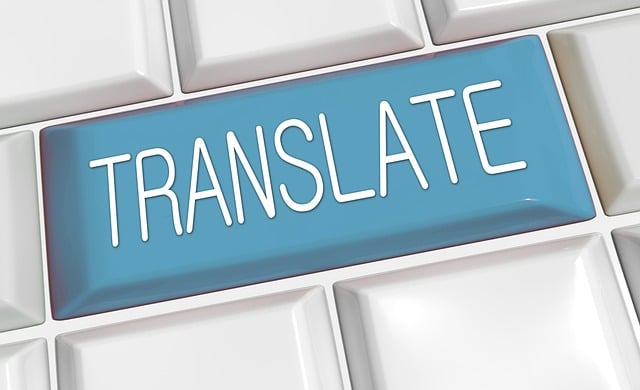Rapid Translate Team
Translation seems like a straightforward process where the translator simply changes words into other languages. However, everything isn’t always what we expect it to be. Anyone who has tried translating content would discover it is a complex process. This has made people ask questions like, “Why are some words difficult to translate?”
Some words make the translation process challenging for several reasons. In this blog post, we have identifi\ed why certain words are particularly hard to translate.
Read on to get answers to get answers to your translation problem.

Table of Contents
Why Are Some Words Difficult To Translate Into Other Languages?
Some words are difficult to translate into another language because of cultural and vocabulary issues. Language is an interesting and complex communication system spanning across cultures.
However, some words may make this system challenging for translators. We have highlighted the reasons for this problem in this section.
1. Cultural Differences
Language is essential to culture; both systems work together to help people interact. Many words have meanings unique to a particular cultural practice, history, or belief. For example, the Japanese word “Tsundoku” describes a habit of obtaining and piling up books without reading them.
This concept is unique to Japanese culture and doesn’t have a direct English translation. While English may describe the behavior as “book hoarding,” it doesn’t capture the Japanese cultural context. The uniqueness of the word “tsundoku” lies in this context.
Thus, translating this Japanese word into English may change the idea behind it. Due to this difference, anyone who doesn’t speak Japanese may not give it a similar language quality.
2. Deep Emotions
Words often get their meaning from the context in which people use them. Translation isn’t just about conveying the meaning of words; it also covers emotions. Some words carry a unique emotional weight, making conveying a similar message difficult.
This makes it challenging to find a single word that covers all its uses in another language. For instance, the German word “Fernweh” describes a strong desire to travel to a distant place. The term contains a strong emotional desire, combining both longing and restlessness. While English speakers often use it as a loanword, no English word perfectly captures the same concept.
The closest may be “wanderlust,” but it doesn’t give the same in-depth emotion as “Fernweh.” In essence, the word is deeper for the German language speakers. Using it as a loanword in English means you have to explain it to your audience. This is the only way to create similar emotions and thoughts.
3. Linguistic Qualities
Languages have unique grammatical structures, vocabulary, and syntax that make it difficult to translate words. These qualities also make it difficult to find a suitable word with the same meaning in other languages. Translators may have to use explanations instead of literal translations.
For example, the Arabic word “Mujamala” refers to compliments or polite expressions used to respect or avoid offending someone. This concept involves behaviors and speeches that people expect at social gatherings. Even if these expressions are false, they help to maintain harmony and respect.
Unfortunately, “Mujamala” doesn’t have a direct Arabic-to-English translation. Capturing the essence of this word often needs a detailed explanation from the translator. This is the only way to convey the unique language and cultural context.

4. Idiomatic Expressions
Idioms are a major challenge that translators have to face during the translation process. Phrases with the perfect meaning in one language have no direct translation in another. Idioms often intertwine with specific cultural contexts. This makes it difficult to convey their original meaning in other cultures.
For example, the English phrase “let the cat out of the bag” means to reveal a secret. However, its direct Spanish translation will be “Dejar salir al gato de la bolsa,” which doesn’t carry the same meaning. The picture and representation are different in Spanish and English translations.
Thus, the literal translation would fail to convey the original meaning. The translator may modify the phrase in the target language to give the same meaning. Another solution may be to provide an explanation that doesn’t give the original impact.
5. Regional Dialect
Many languages have regional dialects and slang that differ in different areas. People who speak similar languages in different regions may not know these words. While this group may quickly adapt, different language speakers would have problems getting these words.
Translating these words will be challenging because the translator has to explain their concept. This is the only way the target audience can understand the meaning.
6. Technical Terms
Technical terms in science, medicine, or technology fields may be challenging to translate. Professionals and researchers often create terms relating to the process or their country’s origin language. In addition, some less-exposed countries may not have experience with these terms.
This makes it challenging to find similar terms in another language. Translators may have to create new terms or use phrases that explain the word. This can lead to misunderstanding in the target language. This factor and other situations make it difficult to translate official documents.

FAQ
Why are some words hard to translate?
Some words are hard to translate because they have specific cultural, contextual, or emotional meanings. These can include concepts unique to a particular culture, idioms, or terms that depend on cultural contexts. It is difficult to find suitable words with similar meanings in another language.
What is the hardest word to translate?
The hardest word to translate varies depending on the language pair and cultural nuances. However, People often consider the Japanese term “Ikigai” the hardest word to translate. This term refers to a person’s reason to be alive or their life purpose. Its cultural nuance and context make it difficult to translate.
Why is translating difficult?
Translating is difficult because it requires a deep understanding of cultural nuances, idioms, and context. Languages often express situations differently across cultures. Hence, directly translating words can lead to misunderstandings or loss of meaning.

What Makes Translation Difficult? The Test of a Translator’s Competence
Some words are difficult to translate into another language because of their language and cultural qualities. Words have deep roots in cultural nuances and language structures that resist simple translation. These factors are what make translation difficult for translators.
Translation is an art that requires deep linguistic knowledge, cultural insight, and understanding of contexts. A proficient translator must understand the meaning of these words to convey the original meaning in another language. They must also be able to identify various idioms and phrases.
This is the only way they can communicate with the target audience. Translating words accurately may be challenging for someone without training and knowledge. This is why some people may use translation tools like Google Translate and DeepL to translate texts.
Although these options are fast and effective, they are not completely accurate. You may have to review their results to make the translations culturally appropriate. However, investing in professional translation services like Rapid Translate can give you high-quality results.
With our services, you don’t need to worry about questions like, “Why are some words difficult to translate?” Our professional human translators are experts in different fields and industries. They have the skill and experience to translate difficult words into different languages.
Connect to a global audience and elevate your communication with Rapid Translate’s services. Order now to experience easy translation services!





